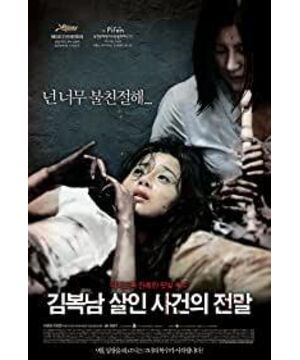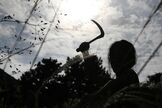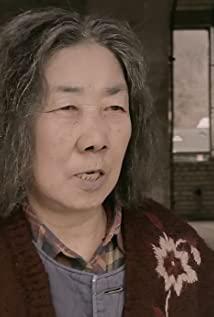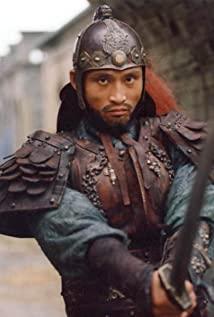Assistant Director has a feeling of hope, such as Rossellini's assistant director Fellini, Renoir's assistant director Jacques Baker, Li Hanxiang's assistant director Hu Jinquan, and Ozu Yasujiro's assistant director Director Imamura Shohei. And this time, it was Jang Cheol-soo, the assistant director of Kim Ki-duk.
In all fairness, I would not put this film into the category of "good film", after all, there are too many obvious shortcomings and immaturity, not mature enough, mere skill, not to mention self-styled, even thinking about it. It's still too early to beat Kim Kidd. But it is precisely because of this that in this jerky but full of pulsing work, we can even see the growth of a new director, and we can see an "assistant director" who came out of Kim Ki-duk's slanted style. style" director.
Maybe he will become the next shining name. After all, just look at the development of Korean movies in the past 20 years, and there is reason to be optimistic.
Speaking of which, in genre movies, thriller is a long-lasting category, and among the subtypes under this category, there is a so-called rape and revenge category. It is easy to understand that the protagonists of such films are (physically/mentally) humiliated women on the road to revenge. Naturally, the theme of this type of film clearly points to male power. Even if there are various variants, the general line remains the same, that is, "burst in silence", Jin Funan is such a type of film.
The reason why Korean directors choose such a theme is self-evident. As one of the small Asian countries deeply influenced by Confucianism, in the gap between Eastern and Western cultures, Korea is more in a dilemma than Japan. They don't forget their ancestors as easily as the Chinese do, and they don't want the Japanese to stick to their traditions as clearly and clearly. The back and forth of the value system of male superiority and female inferiority is a very realistic and heavy topic.
Jin Funan is a peasant woman who is honest and hard-working, and at the same time full of expectations for the outside world, but on Wudao, a small island that is far away from society and operates according to her own unique rules, she never dared to have a single complaint. So we see him being beaten at will by his husband, ravaged by his uncle, reprimanded by the elders of the family, without status, without a voice, without a sense of presence. The only consolation was to write to her childhood friend, Jung Hae-won, who was far away in Seoul. In the city, Zheng Haiyuan, who was busy all day, even hung up her mother's phone impatiently. How could she be in the mood to read boring letters.
What the author is actually showing here is two different types of women, at least, women who look different. One is Jin Funan, living under the shadow of traditional patriarchy and violent contempt, they are weak; the other is living in a modern society where men and women seem to be equal, with jobs and status, but obviously, like Zheng Haiyuan, they are weak. Still weak, dare not express their voice, dare not insist on their own views, dare not speak and do not dare.
The saddest thing is of course the latter. When there is no traditional ethics, no red tape, no honor and humility, they still suffer from another form of inferiority. This can then be extended even further and become another "The Beginning and End of the Zheng Hae Won Murder Case", which of course is off topic again.
Speaking of Jin Funan, there are two factors that prompted her to break out, one is the death of her daughter, and the other is Zheng Haiyuan's indifference. These two incidents happened one after another. The core part is the latter. The author deliberately set up another line of childhood friendship between the two to supplement. The most core one is Zheng Haiyuan being bullied by boys, and Jin Funan desperately protects her. Content. The intention of this is obvious, an unequal friendship finally makes people disheartened after fifteen years. Jin Funan saw Zheng Haiyuan standing on the top of the mountain, but the person who regarded her as a friend denied in front of the police that he had witnessed the scene. This must be said to be a heavy blow. Jin Funan's only spiritual support for more than ten years has collapsed. What is Zheng Haiyuan afraid of? This is a question. Is it the shadow of the previous incident? Yes, that's right, but at a deeper level, as said before, she herself is also a victim of patriarchal society, even a defender. Her own actions are nothing more than strengthening and building up the violent wall of male power. In fact, if you don’t stick to the scope of patriarchy, it can be extended. In today’s society, how many people are dressed like this, with delicate and fair skin, living in a big city, but indifferent and ruthless like a beast ?
In this sense, Kim Funam is more of an illuminator than Jung Hae Won. She resisted, of course, this kind of resistance seemed extremely desolate on an island far away from modern society. She escaped, she managed to escape from submission and fear of patriarchy. (Of course, she can't escape from the ethics and morals of society.) What is left of Zheng Hae-won? The author asks her to use a more "gentle" way to get out of the cage. That is to identify the murderer. This is undoubtedly a challenge, a kind of resistance, and a voice of saying "no". After carefully recalling the look in Zheng Hae-won's eyes when he pointed at the two hooligans at the police station and said "that's what they did," It can be found that this is not just a simple level of "discovery of conscience", but another form of explosion and awakening as an extension and supplement of Jin Funan.
The point of view of this film is very female. Of course, this is related to Kim Ki-duk. It is not so much that the author is expressing the awakening of women, but that he is "promoting" them to awaken. At this point, there is always a little flaw.
Speaking of defects, the first one is the transformation of time and space. The film is clearly divided into three sections, Seoul, No Island, and Seoul. After explaining the situation of Zheng Haiyuan and foreshadowing the confession incident, the scene was switched to Wudao, and after Jin Funan completed his escape, the scene was switched back to Seoul to complete Zheng Haiyuan's awakening. Such a design would seem blunt and overhead, and the artificial traces are too heavy. The island is indeed purely fictional, but the direct conversion almost irrelevant will make people feel that they can't connect.
Speaking of no island, there is a slightly strange dark line here, that is, the blood relationship of the people on the island. The polygamous community left by a shipwreck breeds the island's own rules of survival. Speaking of which, it's a very "Kim Ji-duk" design, but it's not very useful here, and this kind of obscure and wet character relationship doesn't play a big role. Swinging away in vain, instead, alienated.
In addition, the bloody scene is also one of the minor flaws. Of course, the image expression of Jin Funan's explosion must be based on a large amount of blood plasma, but the director is obviously a little addicted. In the scene where Jin Funan kills her husband, The point of view shot taken from the top is especially obvious. I thought it was unnecessary, Confucius said, too much. Too many scenes have accumulated, but instead the anger that should be expressed has been diluted. If Jin Funan is just a crazy woman who broke out under pressure, the film will greatly lose its own meaning.
In addition, the ending is not clean enough, and there are some problems such as procrastination in the handling of the plot, which are mostly caused by experience, and forgiveness will not be fatal, so there is no need to force it.
This is not a good work, I still think so, but the first work is like a virgin, the skill is not good, but it is lovely. Appreciating a flawed debut is sometimes more personal than appreciating a master classic.
View more about Kim Bok-nam salinsageonui jeonmal reviews











